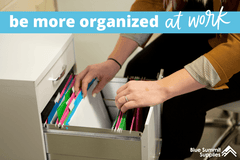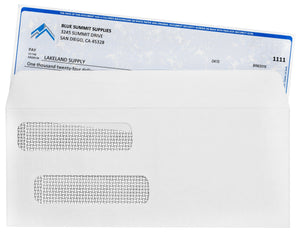Have you ever needed a notary public for work documents but struggled to find the time to leave the office and find one locally? Or, have you been considering the benefits of becoming a notary yourself? In this post, we’ll answer all your questions about what a notary public is including how notary services work, benefits of becoming a notary, and why you should have a notary in your office.

What is a Notary Public?
A notary, also called a public notary or a notary public, is someone who serves as an official and impartial witness usually called upon to oversee the signing of important documents. According to the National Notary Association, “A Notary's duty is to screen the signers of important documents for their true identity, their willingness to sign without duress or intimidation, and their awareness of the contents of the document or transaction.”
Why Notarize Documents?
For certain documents, it is important to have a notary present for the signing. For documents that need an identity verified it is important to have an official acknowledgement that the signature is valid. A notary public makes sure that each person is who they say they are and that they are capable of participating.
According to the business resource website Entrepreneurship In A Box, “Notarization proves that the identity of both parties are real and not a stolen or fake identity. This is to avoid fraud and ensure proper execution of any document or contract. Financial institutions usually require this when a transaction is needed regarding a property.”

How Does a Notary Work?
Some documents that need signing are legally binding on their own without a notary. However, other documents require a notary to verify that all signing participants are who they say they are. The notary public’s job is to be a witness and verify the signing to make the document legally binding.
Here are the basic steps to using a notary public’s services:
- Find a notary in your community.
- Assemble your documents and make sure they are properly and completely filled out, except for the required signatures.
- Bring documents that validate your identity and present them to the notary at the time of the signing. These documents could be a government issued license, passport, or birth certificate. Note: validating your identity is at the discretion of the notary. Therefore, make sure you bring proper identification.
- Sign the document in front of the notary public.
- The notary public will then sign the document and add a seal of approval in the form of a stamp.
- Pay the notary fee for the service.
What is a Notary Public Statement?
A notary public statement is an acknowledgement of verification and a seal of approval. Once a document is signed or an oath is made orally, a notary will provide a statement. A notary statement will include what type of service was performed, who participated, when and where, and will include the notary’s information and seal.
All documents signed by a notary should come with a separate statement that will have a stamp that authenticates the notary’s services as well as the information stated above.

Does the Post Office Have a Notary?
The short answer: no.
Without an in-office notary you may end up frequently asking yourself, “where is a notary near me?” Contrary to popular belief, you won’t find a notary at your public post office. Notary publics are a state service and post offices are a federal agency. As a federal agency, the post office cannot provide notary services.
The most convenient way to access a notary public would be to visit a local bank. Rather than looking for a post office notary, consider making a trip to a privately-owned shipping store. Additionally, there are specific notary offices that specialize in serving their communities.
Here is a longer list of public places where you can find a notary:
- Banks
- Libraries
- Universities
- AAA locations
- Law firms and law Offices
- Accounting offices
- Private shipping stores such as UPS

Who is a Notary Public?
A notary public is any qualified person who has passed any and all qualifications including exams and expectations and has receive a valid certificate to act as an official and impartial witness of the signing of documents.
It is important to verify your notary before using their services. There are occasionally scammers offering notary services who are not qualified to do so and who might also offer services not offered by notaries.
The National Notary Association recommends looking out for red flags: “Notaries are not allowed to give legal advice or translate their title into foreign languages. Con artists use those methods to take advantage of immigrants who may not be familiar with the differences between the duties of American notaries and notaries from their home country.”
Benefits of Having an In-House Notary
There are many benefits to having a notary public in your office. While there are many convenient ways to access a notary public, there are significant benefits to investing into having an in-house employee certified as a notary.
Having an in-house notary is a great way to streamline the more complicated business processes that deal with sensitive and important documents and require a witness for signing. Of course, the most convenient way to access a notary for your business would be to have an employee in the office certified as a notary public.
With an in-house notary, you won’t have to travel to and from the bank or a notary office. This will cut down on wasted time and make it quicker to get work done. Also, it will cut down on fees you’ll pay if going to most publicly accessible notary publics.
Additionally, having an in-office notary could act as a way to gain additional customers, especially if your business is a bank or shipping office.
Jobs and Duties
Notary Public Requirements
Notaries in all states are authorized to perform oaths, affirmations, and acknowledgements. Any other duties will differ for each state. A list of authorized duties and requirements for each state can be found at the site for the American Society of Notaries.
What Does a Notary Public Do?
The most basic duty of a notary is to acknowledge that a participant is who they say they are when signing a document. You will examine their proof of identity, determine its validity and, if valid, authorize their signature.
For oaths and acknowledgements, your job as a notary will be to verbally administer an oath or affirmation and then authorize a response whether verbally or by signature.

What Are the Benefits of Being a Notary?
Perhaps you have been asked to become a notary for your office, are considering if you should get a notary for your office, or are contemplating going through the process on your own. Great! There are many benefits of becoming a notary.
A New Skill
Being a notary public is one of the most popular skill added to resumes and could help your prospects. If you are in the midst of a job search, it might work to your advantage by incentivizing offices to add you to their team knowing you’ll be close by to act as an-office notary.
Additional Income
Your notary services can be used out of the office as well. As a notary, you are free to charge for your services and keep all of the income. Acting as a mobile notary is a popular way to gain more clients and earn some extra money. Be sure to check in with your state requirements as there is sometimes a regulation for how much you can charge for your services as a notary.
Serving Your Community
Are you looking for an easy way to give back to your community? Offering your notary services to your community for free could be a great way to serve those who might need, but cannot afford, a notary public. According to the National Notary Association, “Notaries often hold events at community centers, retirement homes and campuses to provide free or low-cost notarizations. It’s also a great way to network and market yourself for paying clients.”
How to Be a Notary Public
In general, the steps to becoming a notary public are very simple. Some states have a more rigorous qualification system including exams and background checks, but most only require you to pay a fee, fill out an application, and meet qualifications.
The National Notary Association lists the steps to becoming a notary public as follows:
- Make sure you meet all of your state’s qualifications.
- Complete and submit an application.
- Pay the state’s filing fee.
- Get training from an approved education vendor (if applicable).
- Pass a state-administered exam (if applicable).
- Complete fingerprinting and background check (if applicable).
- Receive your commission certificate from the state.
- Get your surety bond (if applicable).
- File your commission paperwork (and bond) with your Notary regulating official.
- Buy your Notary supplies
For more about Blue Summit Supplies and office culture, check out our blog. Or to see what we’re up to, find us on Twitter, Instagram, and Facebook. And as always, feel free to reach out– Larry loves to hear from you.
 For more informative articles about office supplies, subscribe to our email newsletter!
For more informative articles about office supplies, subscribe to our email newsletter!
Never fear, you won't begin receiving daily sales emails that belong in a spam folder. Instead, we promise a fun weekly roundup of our latest blog posts and great finds from across the web. And if you lose interest, it's always easy to unsubscribe with a single click.











4 comments
Justine Callahan
Hi Levi! You are most welcome! I hope all goes well buying his new car!
Levi Armstrong
My husband is looking for a notary public because he’s selling his old car and would need to have a notarized signature of the title and registration. It’s great that you mentioned that he could find a notary in a bank, library, accounting offices, and private shipping stores, aside from law firms. I’ll share this information with him so he can have the documents notarized as soon as possible and have the deal sealed. Thanks for this! http://lillc.net/notary-services
Justine
Hi Philile! Unfortunately the post office can not notarize because it is a federal agency and notarization is a state service. There are some post offices that have a private business in the same building which can perform this service.
Philile Phenyane
Can i find notary public by the post office ?
To sigh copies that needed at university